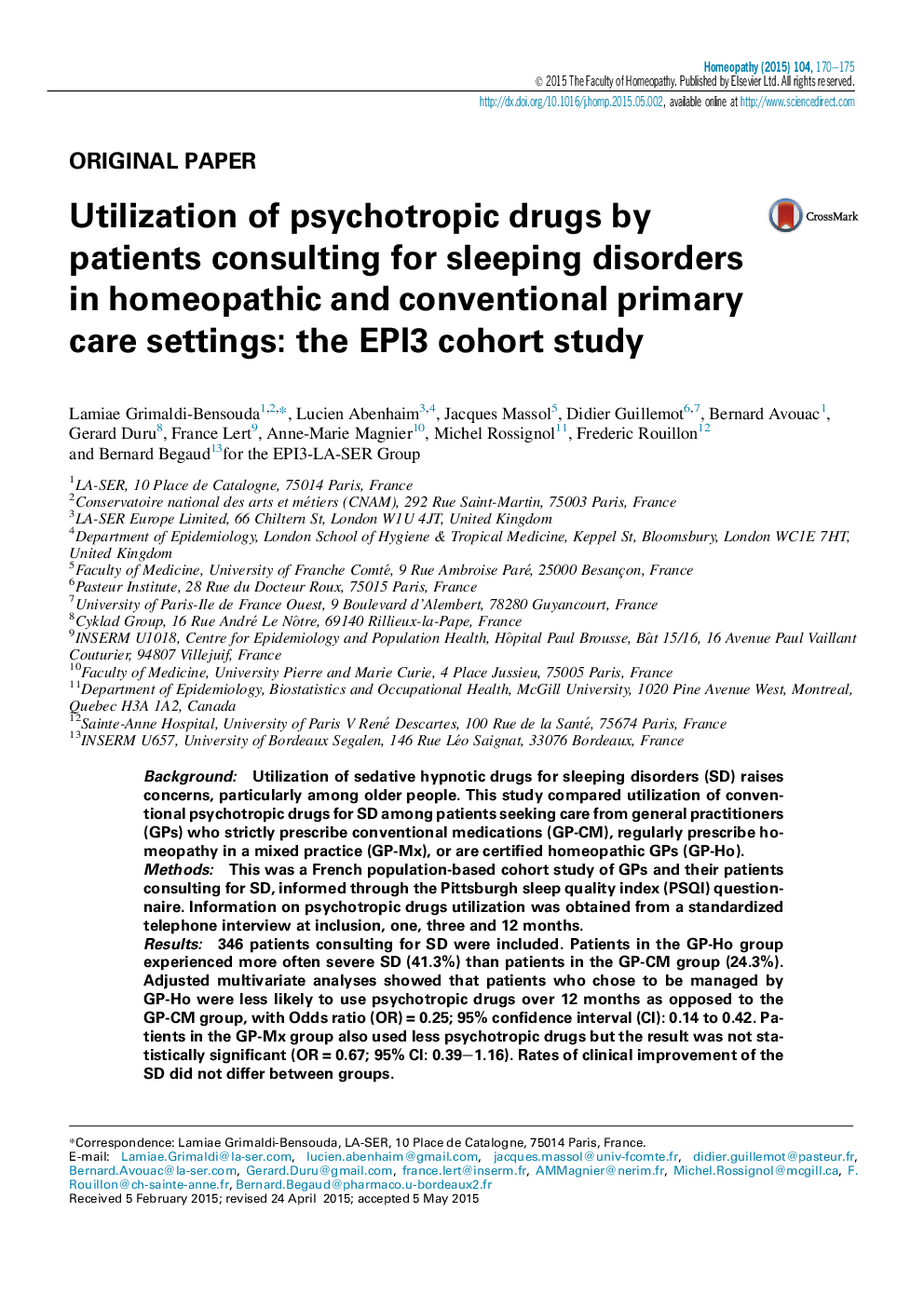| Article ID | Journal | Published Year | Pages | File Type |
|---|---|---|---|---|
| 2629867 | Homeopathy | 2015 | 6 Pages |
•Patients with more severe SD chose to consult a homeopathic physician on second intention.•Patients who chose to consult homeopathic physicians used less than half psychotropic drugs for SD.•Using either homeopathic or conventional treatments showed no difference upon improvement of SD.
BackgroundUtilization of sedative hypnotic drugs for sleeping disorders (SD) raises concerns, particularly among older people. This study compared utilization of conventional psychotropic drugs for SD among patients seeking care from general practitioners (GPs) who strictly prescribe conventional medications (GP-CM), regularly prescribe homeopathy in a mixed practice (GP-Mx), or are certified homeopathic GPs (GP-Ho).MethodsThis was a French population-based cohort study of GPs and their patients consulting for SD, informed through the Pittsburgh sleep quality index (PSQI) questionnaire. Information on psychotropic drugs utilization was obtained from a standardized telephone interview at inclusion, one, three and 12 months.Results346 patients consulting for SD were included. Patients in the GP-Ho group experienced more often severe SD (41.3%) than patients in the GP-CM group (24.3%). Adjusted multivariate analyses showed that patients who chose to be managed by GP-Ho were less likely to use psychotropic drugs over 12 months as opposed to the GP-CM group, with Odds ratio (OR) = 0.25; 95% confidence interval (CI): 0.14 to 0.42. Patients in the GP-Mx group also used less psychotropic drugs but the result was not statistically significant (OR = 0.67; 95% CI: 0.39–1.16). Rates of clinical improvement of the SD did not differ between groups.ConclusionsPatients with SD who chose to consult GPs certified in homeopathy consumed less psychotropic drugs and had a similar evolution of their condition to patients treated with conventional medical management. This result may translate in a net advantage with reduction of adverse events related to psychotropic drugs.
